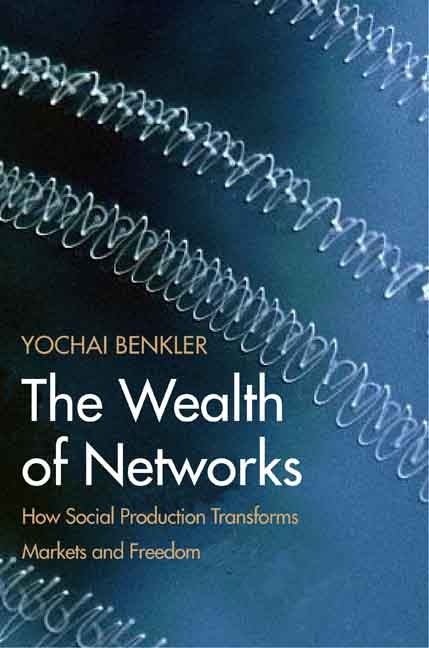Understanding New Media: Augmented Knowledge & Culture
Filed under book | Tags: · network culture, new media, theory
This book outlines the development currently underway in the technology of new media and looks further to examine the unforeseen effects of this phenomenon on our culture, our philosophies, and our spiritual outlook. The digital revolution is something fundamentally different from simply the introduction of yet another medium to our culture: it marks a paradigm shift in our relation to all media, to all our senses, all our expressions. The new media are transforming our definitions of culture and knowledge and transcending barriers in ways that will have lasting implications for generations to come.
Understanding New Media: Augmented Knowledge & Culture
By Kim H. Veltman
Edition: illustrated
Published by University of Calgary Press, 2006
ISBN 1552381544, 9781552381540
689 pages
preview
Adalaide Morris, Thomas Swiss (eds.): New Media Poetics: Contexts, Technotexts, and Theories (2006)
Filed under book | Tags: · code poetry, concrete poetry, digital poetry, electronic literature, literature, new media, poetics, poetry, sound poetry, text

New media poetry–poetry composed, disseminated, and read on computers–exists in various configurations, from electronic documents that can be navigated and/or rearranged by their “users” to kinetic, visual, and sound materials through online journals and archives like UbuWeb, PennSound, and the Electronic Poetry Center. Unlike mainstream print poetry, which assumes a bounded, coherent, and self-conscious speaker, new media poetry assumes a synergy between human beings and intelligent machines. The essays and artist statements in this volume explore this synergy’s continuities and breaks with past poetic practices, and its profound implications for the future.
By adding new media poetry to the study of hypertext narrative, interactive fiction, computer games, and other digital art forms, “New Media Poetics” extends our understanding of the computer as an expressive medium, showcases works that are visually arresting, aurally charged, and dynamic, and traces the lineage of new media poetry through print and sound poetics, procedural writing, gestural abstraction and conceptual art, and activist communities formed by emergent poetics.
Contributors: Giselle Beiguelman, John Cayley, Alan Filreis, Loss Pequeno Glazier, Alan Golding, Kenneth Goldsmith, N. Katherine Hayles, Cynthia Lawson, Jennifer Ley, Talan Memmott, Adalaide Morris, Carrie Noland, Marjorie Perloff, William Poundstone, Martin Spinelli, Stephanie Strickland, Brian Kim Stefans, Barrett Watten, Darren Wershler-Henry
Published by MIT Press, 2006
Leonardo Books
ISBN 0262134632, 9780262134637
425 pages
PDF (updated on 2012-7-24)
Comment (0)Yochai Benkler: The Wealth of Networks: How Social Production Transforms Markets and Freedom (2006)
Filed under book | Tags: · law, mass collaboration, network culture, new media, politics, social production

“With the radical changes in information production that the Internet has introduced, we stand at an important moment of transition, says Yochai Benkler in this thought-provoking book. The phenomenon he describes as social production is reshaping markets, while at the same time offering new opportunities to enhance individual freedom, cultural diversity, political discourse, and justice. But these results are by no means inevitable: a systematic campaign to protect the entrenched industrial information economy of the last century threatens the promise of today’s emerging networked information environment.
In this comprehensive social theory of the Internet and the networked information economy, Benkler describes how patterns of information, knowledge, and cultural production are changing—and shows that the way information and knowledge are made available can either limit or enlarge the ways people can create and express themselves. He describes the range of legal and policy choices that confront us and maintains that there is much to be gained—or lost—by the decisions we make today.”
Publisher Yale University Press, 2006
ISBN 0300110561, 9780300110562
515 pages
Book website
Mastodon
Publisher

